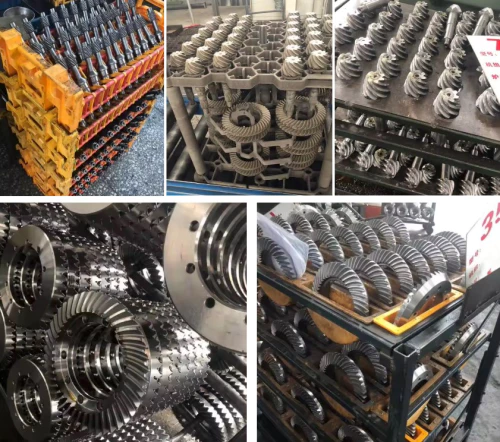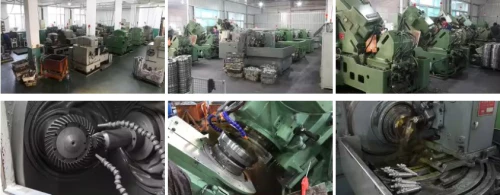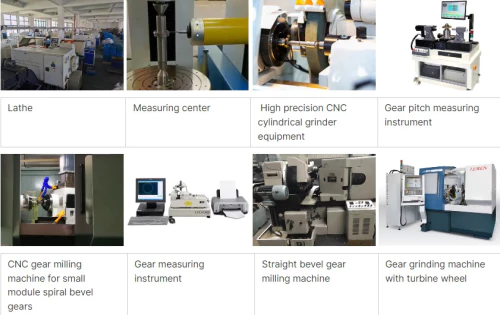How does the forging process impact the wear resistance of bevel gears?
Introduction
Forging bevel gears are a type of bevel gears that are manufactured through the forging process. Forging involves shaping metal through the application of localized compressive forces, typically using a die or hammer. In the case of bevel gears, the forging process is used to form the gear teeth and create the desired gear geometry.
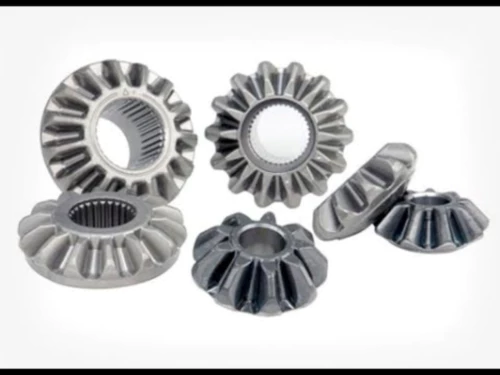
Advantages of Forging Bevel Gears
- High Strength: Forging bevel gears exhibit high strength due to the metal's grain structure, resulting in improved durability and wear resistance.
- Improved Fatigue Resistance: The forging process enhances the fatigue resistance of bevel gears, allowing them to withstand repetitive loading without failure.
- Precise Gear Tooth Geometry: Forging ensures precise control over the gear tooth geometry, leading to better meshing and overall performance.
- Cost-Effectiveness: Despite the initial investment required for forging, the long-term cost-effectiveness of bevel gears is evident due to their extended lifespan.
- Versatility in Material Selection: Forging allows the use of various materials, such as steel, alloy, or titanium, depending on the specific application requirements.
- Enhanced Structural Integrity: The forging process eliminates voids and porosity, resulting in bevel gears with improved structural integrity and resistance to deformation.
- Tailored Mechanical Properties: Through forging, the mechanical properties of bevel gears can be tailored for specific applications, ensuring optimal performance.
- Reduced Lead Time: Compared to other manufacturing processes, forging bevel gears can be produced with shorter lead times, increasing efficiency and productivity.
- Environmental Sustainability: Forging is a sustainable manufacturing process that minimizes material waste and energy consumption, contributing to a greener environment.
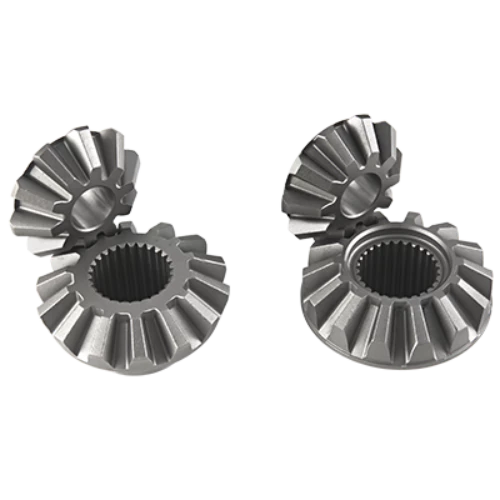
Working Principles of Forging Bevel Gears
Forging bevel gears operate based on the fundamental principles of gear mechanisms. They consist of two intersecting shafts, each with a conically shaped gear (bevel gear) mounted on it. The teeth of the bevel gears are designed to have a specific tooth profile, such as straight, spiral, or hypoid, depending on the application requirements.
When the input shaft rotates, the engagement of the teeth of the bevel gears causes a transfer of rotational motion and torque to the output shaft. The contact between the mating teeth ensures power transmission while maintaining proper alignment and smooth operation.
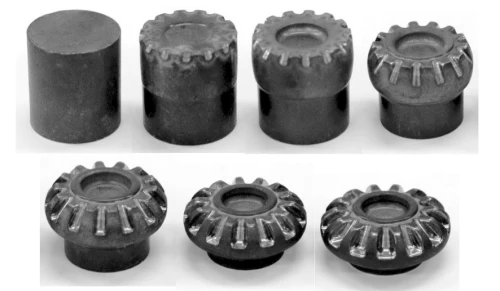
Applications of Forging Bevel Gears
- Automotive Industry: Forging bevel gears are widely used in automotive transmissions, differential systems, and steering mechanisms.
- Industrial Machinery: They find applications in various industrial machinery, including mining equipment, construction machinery, and power transmission systems.
- Aerospace and Defense: Forging bevel gears are crucial components in aircraft engines, helicopters, and military vehicles, ensuring reliable and efficient operation.
- Renewable Energy: Wind turbines and solar power systems utilize forging bevel gears for converting rotational motion into electrical energy.
- Marine and Shipbuilding: Ship propulsion systems, steering mechanisms, and anchor handling equipment rely on forging bevel gears for smooth and precise operation.
- Agricultural Machinery: Tractors, harvesters, and other agricultural machinery use forging bevel gears to transmit power and ensure efficient performance.
- Power Generation: Power plants, including hydroelectric, nuclear, and thermal, employ forging bevel gears in turbines and generators for power transmission.
- Robotics and Automation: Industrial robots, automated assembly lines, and motion control systems utilize forging bevel gears for precise and reliable motion.
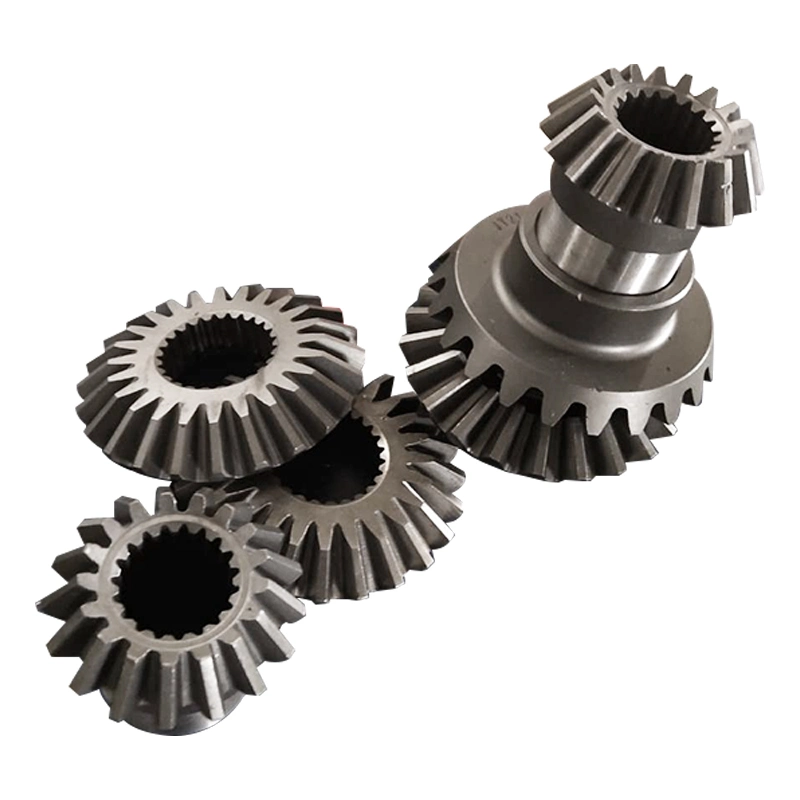
Installation and Maintenance of Forging Bevel Gears
Installation:
- Proper Alignment: Ensuring correct alignment between the bevel gears and their mating components is crucial for optimal performance and longevity.
- Lubrication: Adequate lubrication of the gear teeth and bearings reduces friction, heat generation, and wear, extending the lifespan of the bevel gears.
- Mounting Bolts: Securely fastening the bevel gears using appropriate mounting bolts prevents slippage and ensures reliable power transmission.
- Inspection: Thoroughly inspecting the bevel gears before installation helps identify any manufacturing defects or damage that may affect their performance.
Maintenance:
- Lubrication: Regularly lubricating the bevel gears with suitable lubricants replenishes the protective film and minimizes wear and tear.
- Cleaning: Removing dirt, debris, and contaminants from the bevel gears prevents abrasive particles from causing premature wear.
- Inspection: Periodic inspection of the bevel gears allows for early detection of any signs of wear, damage, or misalignment, facilitating timely maintenance.
- Replacements: When necessary, worn-out or damaged bevel gears should be promptly replaced to avoid further damage to the entire gear system.
- Gearbox Maintenance: Ensuring the proper maintenance of the gearbox housing the bevel gears is essential for their overall performance and longevity.
- Load Monitoring: Monitoring the operating conditions and load on the bevel gears helps prevent overloading and potential failures.
- Training and Expertise: Proper training and expertise in the installation and maintenance of bevel gears ensure optimal performance and longevity.
- Record-Keeping: Maintaining comprehensive records of installation, maintenance, and inspections enables effective tracking of the gear performance and aids in troubleshooting.
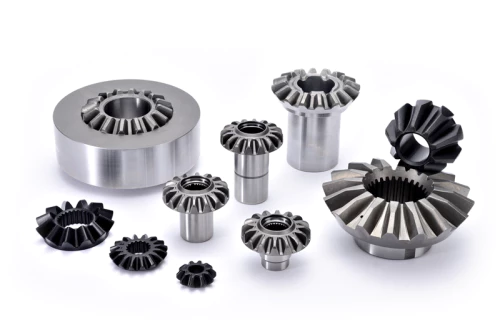
How to Select the Right Forging Bevel Gear
- Application Requirements: Consider the specific application requirements, including load capacity, operating conditions, and speed, to select a suitable forging bevel gear.
- Design and Specifications: Evaluate the design and specifications of the bevel gear, such as tooth profile, pitch diameter, and number of teeth, to ensure compatibility with the application.
- Material Selection: Choose the appropriate material for the forging bevel gear based on factors such as strength, hardness, wear resistance, and corrosion resistance.
- Quality and Reliability: Ensure that the forging bevel gear meets the required quality standards and has a reliable track record in similar applications.
- Load-Carrying Capacity: Assess the load-carrying capacity of the bevel gear to verify its ability to withstand the anticipated loads without failure.
- Efficiency and Performance: Consider the gear's efficiency and performance characteristics, such as smooth operation, low noise, and minimal power losses.
- Customization and Adaptability: Choose a forging bevel gear that can be customized or adapted to fit specific application requirements, ensuring optimal performance.
- Cost Considerations: Evaluate the overall cost, including the initial investment, maintenance, and potential downtime, to select a cost-effective forging bevel gear.
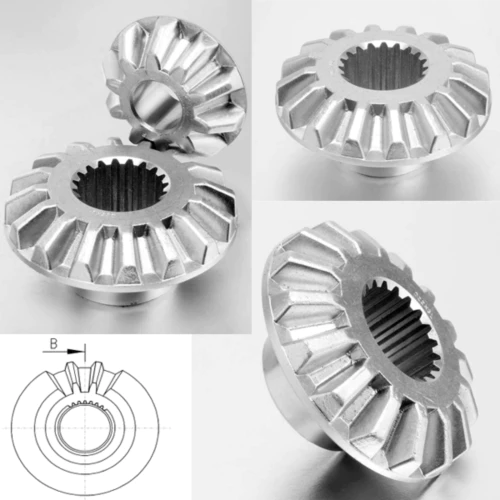
Shaoxing Chaoli: A Leading Manufacturer of Forging Bevel Gears
Shaoxing Chaoli is a professional manufacturer of gears in China. With products exported to various countries, such as Spain, the Netherlands, the United States, South Korea, Turkey, and Russia, the company has gained a reputation for providing high-quality products and excellent customer service.
At Shaoxing Chaoli, the principles of quality first, timely delivery, and credit first are strictly adhered to. The company values every business partner and aims to develop together and create brilliance.
Shaoxing Chaoli offers a wide range of gear products, including worm gears, spiral bevel gears, helical gears, spur gears, plastic gears, and metric gear racks. Customized products are also available to meet specific customer requirements.
The company has a dedicated team of engineers and employs strict quality management systems, ensuring the production of gears with superior quality and reliability. Equipped with advanced precision measuring instruments and production monitoring systems, Shaoxing Chaoli maintains a competitive edge in the industry.
